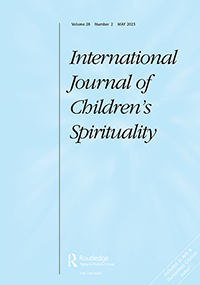The role of culture and traditions in how young children’s identities are constructed
2019
Article

This article explores how cultures and traditions influence the construction of young children’s identities. Identity is conceptualised as a constantly changing narrative based on how an individual sees him or herself and how s/he is perceived. We all have multiple, intersecting identities. Different meanings of culture are discussed, highlighting norms and values, ‘culture-as-the-arts’, and space for growth. Primary and secondary socialisation is emphasised, recognising the influence factors such as gender, race, class and religion. The effect of the home and of the macro-culture and different micro-cultures and traditions is considered. In relation to children’s spirituality, trusting relationships and hospitable environments, and the need to counter messages given by an individualistic and consumerist macro-culture are highlighted. An apprenticeship approach is advocated, where adults encourage questioning and strive to maintain children’s sense of agency, with a gradual transfer of power as children become older and/or more confident. It is suggested that researchers and practitioners should take more account of external factors such as gender, race and class in relation to children’s spirituality.
Author:

Tony Eaude
Executive Committee Member and Website (publications page)
Publisher:
International Journal of Children’s Spirituality
Link:
View online
Digital Object Identifier:
https://doi.org/10.1080/1364436X.2019.1619534
Journal number:
24
